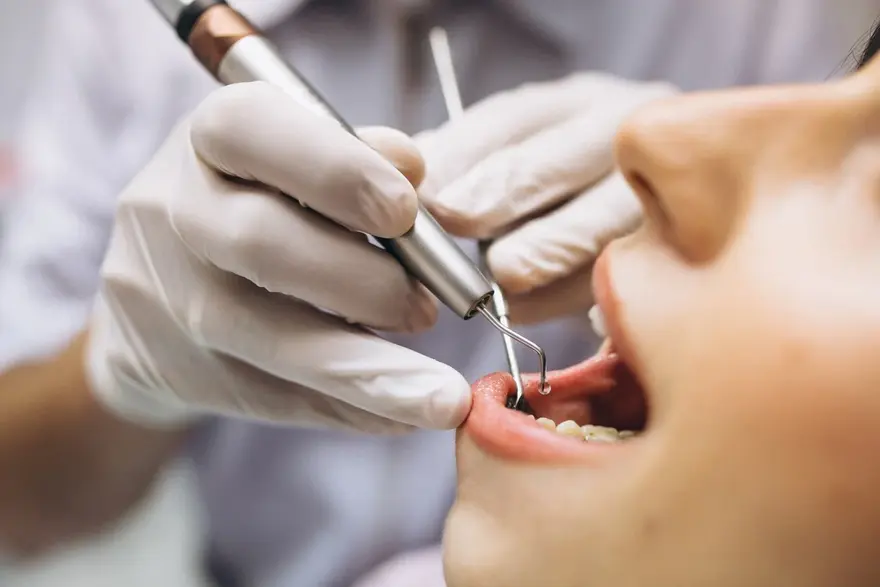Preventive Healthcare
Mouth Cancer: Symptoms, Risk Factors, and Early Detection
92 Views
0

What is Mouth (Oral) Cancer?
Mouth cancer, also known as oral cancer, is a type of cancer that develops in the tissues of the mouth or throat. It falls under the category of head and neck cancers. Mouth cancer most commonly involves the lips, tongue, floor of the mouth, cheeks, gums, or roof of the mouth (palate).
The vast majority of oral cancers are squamous cell carcinomas, which means they begin in the flat, thin cells (squamous cells) that line the mouth and throat. These cancerous cells can spread deeper into the oral cavity and throat, as well as to other parts of the body if not detected and treated early.
According to the World Health Organization, mouth cancer is the 16th most common cancer worldwide, with an estimated 350,000 new cases diagnosed in 2018. In India, oral cancer accounts for around 30% of all cancers.
Types of Mouth Cancer
There are several types of mouth cancer, including:
- Squamous Cell Carcinoma: This is the most common type, accounting for about 90% of oral cancers. It develops in the squamous cells that line the mouth and throat.
- Verrucous Carcinoma: A slow-growing, less aggressive form of squamous cell carcinoma that rarely spreads to other parts of the body.
- Adenocarcinoma: Begins in the salivary glands but is relatively rare.
- Kaposi's Sarcoma: Associated with the human herpesvirus 8 (HHV8) and more common in people with weakened immune systems.
- Oral Melanoma: Develops in the pigment-producing cells (melanocytes) of the oral cavity. It is rare and often more aggressive.
It's important to note that not all growths or sores in the mouth are cancerous. However, any persistent changes in the mouth that last more than two weeks should be evaluated by a healthcare professional.
Symptoms of Mouth (Oral) Cancer
Mouth cancer symptoms can vary depending on the location and extent of the tumour. Some common oral cancer symptoms include:
- Persistent mouth sores or ulcers that do not heal
- Unexplained bleeding in the mouth
- Unexplained numbness, loss of feeling, or pain in the face, mouth, or neck
- Persistent sore throat or hoarseness
- Difficulty chewing, swallowing, speaking, or moving the jaw or tongue
- Lumps, thickening, rough spots, or crusts on the lips, gums, or other areas inside the mouth
- White, red, or speckled patches in the mouth
- Unexplained loose teeth or sockets that do not heal after extractions
- A change in the way your teeth or dentures fit together
- Dramatic weight loss
These symptoms may also be caused by other, less serious conditions. However, if you notice any of these mouth cancer symptoms persisting for more than two weeks, it's crucial to see your doctor or dentist for further evaluation.
Causes and Risk Factors of Mouth Cancer
The exact cause of mouth cancer is not fully understood, but several factors can increase the risk of developing this condition. Some of the main risk factors include:
- Tobacco use: Smoking cigarettes, cigars, pipes, or chewing tobacco significantly increases the risk of oral cancer.
- Heavy alcohol consumption: Excessive alcohol use is a major risk factor, and the combination of heavy smoking and drinking further elevates the risk.
- Human Papillomavirus (HPV) infection: Certain strains of HPV, particularly HPV-16, are linked to a subset of mouth cancers, especially those affecting the back of the throat, base of the tongue, and tonsils.
- Sun exposure: For cancers of the lip, prolonged sun exposure can be a risk factor.
- Betel quid chewing: Popular in Southeast Asia, chewing betel quid (areca nut wrapped in betel leaf, often with tobacco) increases oral cancer risk.
- Poor nutrition: A diet low in fruits and vegetables may increase the risk of mouth cancers.
- Weakened immune system: Conditions that weaken the immune system, such as HIV/AIDS, can make you more susceptible to oral cancers.
- Genetic factors: A family history of oral cancer may indicate a genetic predisposition.
Understanding these risk factors can help you make lifestyle changes to reduce your risk of developing mouth cancer. Regular dental check-ups are also essential for early detection.
Diagnosis of Mouth Cancer
If you notice any persistent signs or symptoms of mouth cancer, your doctor or dentist will perform a thorough physical examination of your mouth, throat, and neck to look for any abnormalities. They may also ask about your medical history and risk factors.
If a suspicious area is found, the following tests may be recommended:
- Biopsy: A small sample of tissue is removed from the suspicious area and examined under a microscope for cancerous cells. This is the definitive way to diagnose mouth cancer.
- Imaging tests: X-rays, CT scans, MRIs, or PET scans may be used to determine the extent of the cancer and whether it has spread to other parts of the body.
- Endoscopy: A thin, lighted tube with a camera (endoscope) may be inserted through the nose or mouth to examine the throat and vocal cords.
Early detection is crucial for the successful treatment of mouth cancer. Regular dental check-ups that include an examination of the entire mouth are essential for finding oral cancers early.
Treatment Options for Mouth (Oral) Cancer
Treatment for mouth cancer, typically involves a combination approach tailored to the individual patient. The specific treatment plan depends on several factors, including the location and size of the tumour, the stage of the cancer, and the person's overall health.
Surgery
This is often the first line of treatment, especially for early-stage cancers. The goal is to remove the cancerous tissue along with a margin of healthy tissue to ensure all cancer cells are eliminated. Depending on the extent of the surgery, reconstructive procedures may be needed to restore appearance and function.
Radiation Therapy
This treatment uses high-energy beams to kill cancer cells. It can be used alone for small tumors or in combination with surgery and/or chemotherapy for more advanced cancers. Radiation may be given externally or internally (brachytherapy).
Chemotherapy
These powerful medications are used to kill cancer cells throughout the body. Chemotherapy is often used in combination with surgery and radiation, especially for cancers that have spread to lymph nodes or other parts of the body.
Targeted Therapy
This newer approach targets specific molecules that help cancer cells grow, divide, and spread. These drugs tend to have less severe side effects compared to standard chemotherapy. Examples include cetuximab and nivolumab.
Prevention and Early Detection of Mouth Cancer
Mouth cancer is a serious disease, but many cases are preventable. To lower your risk of oral cancer, consider these preventive measures:
- Quit tobacco: If you smoke or use other tobacco products, quitting is the most important step you can take.
- Limit alcohol: If you choose to drink, do so in moderation. The risk of oral cancer increases significantly with heavy alcohol use.
- Protect your lips: Use a lip balm with SPF when outdoors, especially during peak sun hours.
- Practice good oral hygiene: Brush twice a day, floss daily, and see your dentist regularly for check-ups and cleanings.
- Eat a healthy diet: A diet rich in fruits and vegetables may help lower your risk of mouth cancer and other diseases.
If you notice any oral cancer symptoms, don't ignore them. Schedule an appointment with your dentist or doctor right away. Early detection is key.
Living with Mouth Cancer: Support and Care
A mouth cancer diagnosis can be overwhelming, but support is available. Seeking the right resources can make a significant difference in your journey.
- Healthcare Team: Your doctors will guide you through treatment, manage side effects, and address concerns. Don't hesitate to ask questions.
- Support Groups: Connecting with others facing mouth cancer offers emotional support and practical advice. Both in-person and online groups are available.
- Counseling Services: Therapists help with stress, coping strategies, and emotional well-being.
- Nutritional Support: A dietitian can help manage eating difficulties, ensuring proper nutrition.
- Palliative Care: Provides pain relief and emotional support at any stage of illness.
- Financial Assistance: Social workers can help find resources for medical and living expenses.
Conclusion and Key Takeaways
Understanding the risk factors, symptoms, and importance of early detection is crucial in the fight against mouth cancer. By making healthy lifestyle choices like quitting tobacco and limiting alcohol, practicing good oral hygiene, and staying alert to warning signs, you can significantly reduce your risk of developing this disease.
If you do notice potential oral cancer symptoms, don't delay in seeking medical attention. At Metropolis Healthcare, we understand the importance of early detection and personalised care. Our advanced diagnostic services, including pathology testing and health check-ups, are designed to empower patients in prioritising their health.























 WhatsApp
WhatsApp